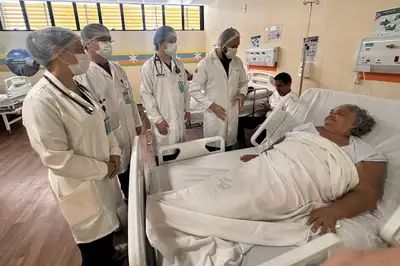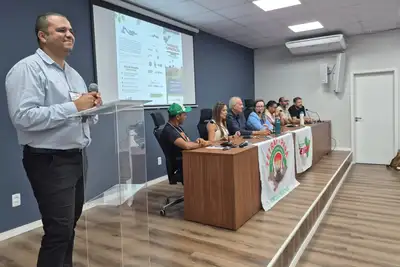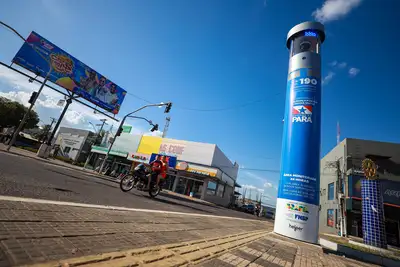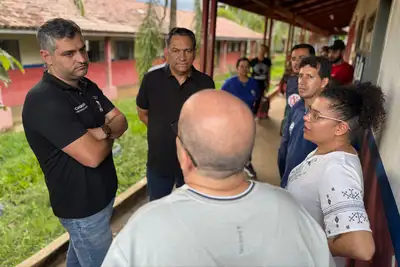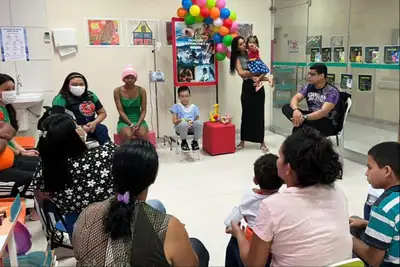Ideflor-Bio receives delegation to discuss meliponiculture projects in Southern and Southeastern Pará
The practice, which already occurs independently in various locations, can gain greater reach and sustainability through public policies that combine environmental conservation, income generation, and cultural appreciation.
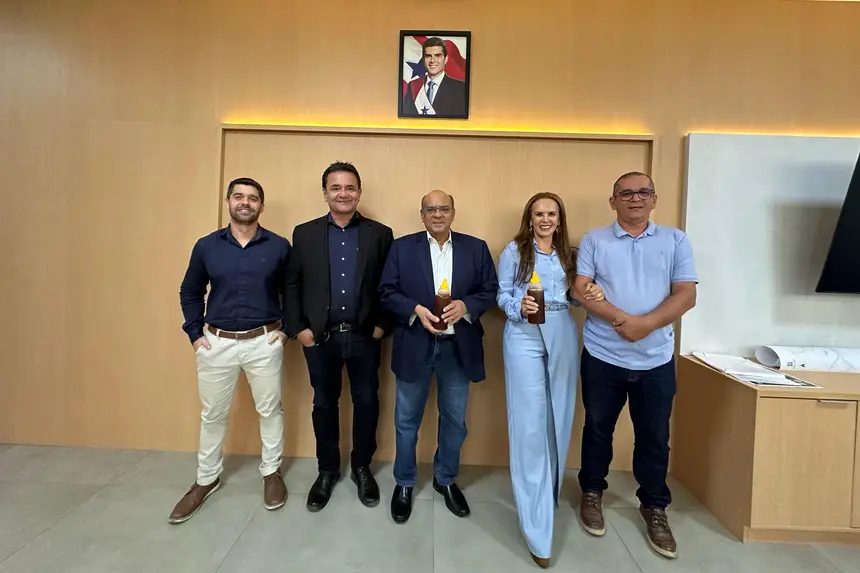
With the aim of seeking institutional support for strengthening meliponiculture in the Southern and Southeastern region of Pará, a delegation led by the councilor of Marabá, Márcio Gonçalves (Márcio do São Félix) and the representative of the Association of Meliponiculturists of Southern and Southeastern Pará (Apmespa), Arthur Medeiros, visited the headquarters of the Institute for Forest Development and Biodiversity of Pará (Ideflor-Bio) in Belém.
During the visit, the delegation was received by the president of Ideflor-Bio, Nilson Pinto, accompanied by the management advisor, Lena Pinto, and the technical advisor, Thiago Valente. On this occasion, the visitors presented demands related to fundraising from the Forest Development Fund (Fundeflor) for projects aimed at beekeeping and meliponiculture in rural communities of Marabá.
The practice, which already occurs independently in various locations, can gain greater reach and sustainability through public policies that combine environmental conservation, income generation, and cultural appreciation.
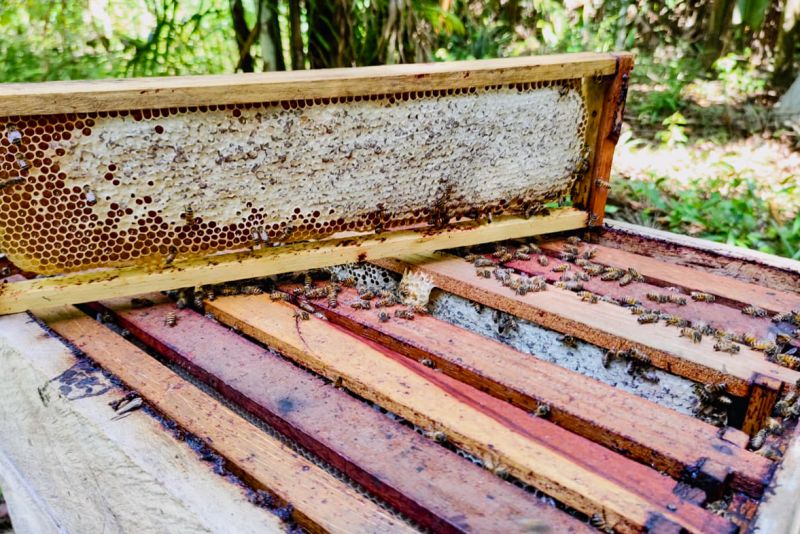
Incentive - The president of Ideflor-Bio, Nilson Pinto, highlighted the relevance of the agenda presented. “We have the honor of receiving, today, here at Ideflor-Bio, Arthur Medeiros, who represents the honey producers and beekeepers of the Southern and Southeastern region of Pará. It was brought here by my friend, councilor Márcio do São Félix, whom I thank. They presented us with a very important project, which we are already evaluating and want to support to strengthen this strategic activity for the region,” he stated.
The management advisor of the Institute, Lena Pinto, also reinforced the agency's commitment to support initiatives aimed at the sector. “It is an honor to welcome you here. We will indeed support this work, as we have already developed actions aimed at meliponiculture in other regions of the State and now we want to expand to the Southern and Southeastern Pará. This is a way to strengthen biodiversity, ensure the preservation of fauna and flora, and at the same time, provide job creation, income, and quality of life for farmers,” she emphasized.
Partnership - Representing the producers, Arthur Medeiros from Apmespa emphasized the importance of the partnership with Ideflor-Bio to transform the activity into a more structured public policy. “Meliponiculture is already a reality in our communities, but it needs incentives to expand sustainably. With the support of Ideflor-Bio, we believe it will be possible to value the work of farmers, generate new opportunities, and at the same time, conserve the Amazon. It is an important step for the entire region,” he said.
The councilor Márcio do São Félix highlighted the role of the articulation between the public power and local producers to give visibility to the activity. For him, the meeting marks the beginning of a joint effort to increase investments and ensure better conditions for meliponiculturists. “The goal is to seek support and resources to transform this practice into an even more sustainable activity that benefits families and strengthens local development,” he stated.
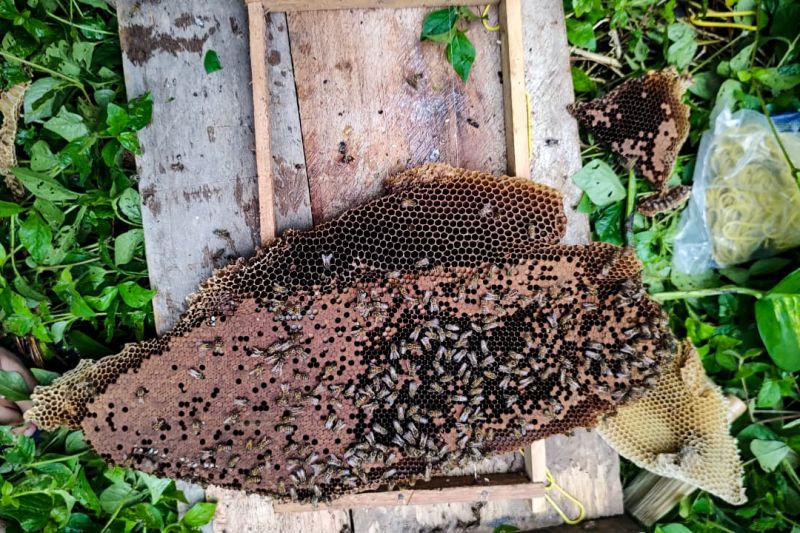
The expectation is that Ideflor-Bio and Apmespa will advance in partnerships aimed at strengthening meliponiculture in Pará. In addition to contributing to the preservation of native stingless bees, the initiative represents a sustainable economic alternative capable of generating income and promoting social inclusion, aligned with the guidelines for biodiversity conservation and sustainable development advocated by the State.




